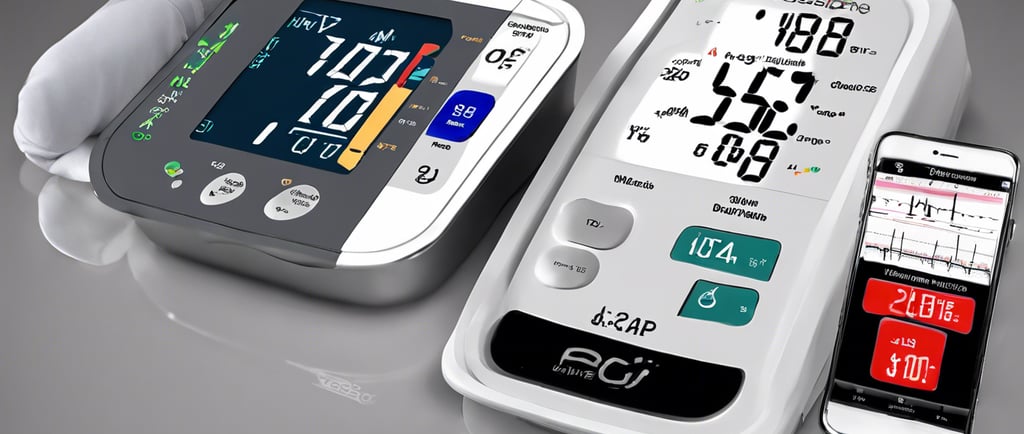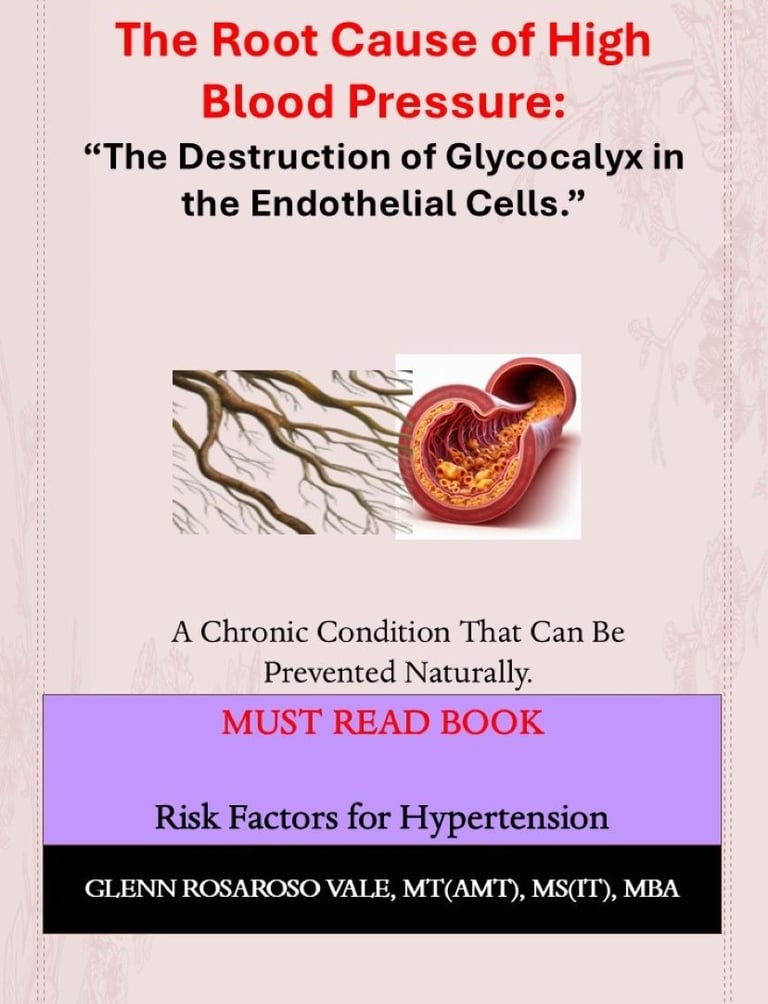"Uncover the truth behind the groundbreaking discovery of the causes of the world's biggest problems. 'The Root Causes' will change how you view the world!"
Effective Strategies to Achieve a Healthy Blood Pressure of 120 mm Hg
Understanding Blood Pressure and Its Importance Maintaining healthy blood pressure is essential for overall well-being. Blood pressure refers to the force exerted by the blood against the walls of your arteries as your heart pumps it around your body. A systolic blood pressure of 120 mm Hg or lower is considered ideal for long-term health, as this level minimizes the risk of cardiovascular diseases and other related conditions. However, when blood pressure rises above normal levels—especially reaching or exceeding 140/90 mm Hg—it can lead to serious health complications, including heart disease, stroke, kidney damage, and even cognitive decline. Research has shown that lowering your systolic blood pressure to 120 mm Hg instead of the previously recommended 140 mm Hg significantly reduces the risk of mortality by about 12%, underscoring the importance of maintaining healthy blood pressure throughout life.
DISEASES
Glenn Rosaroso Vale, BSMT, MS(IT), MBA
12/1/20244 min read


Understanding Blood Pressure and Its Importance
Maintaining healthy blood pressure is essential for overall well-being. Blood pressure refers to the force exerted by the blood against the walls of your arteries as your heart pumps it around your body. A systolic blood pressure of 120 mm Hg or lower is considered ideal for long-term health, as this level minimizes the risk of cardiovascular diseases and other related conditions.
However, when blood pressure rises above normal levels—especially reaching or exceeding 140/90 mm Hg—it can lead to serious health complications, including heart disease, stroke, kidney damage, and even cognitive decline. Research has shown that lowering your systolic blood pressure to 120 mm Hg instead of the previously recommended 140 mm Hg significantly reduces the risk of mortality by about 12%, underscoring the importance of maintaining healthy blood pressure throughout life.
Medication and Blood Pressure Management
When blood pressure exceeds 140 mm Hg, doctors may prescribe medication to help bring it down. There are several types of antihypertensive medications, including calcium channel blockers, beta blockers, alpha blockers, and Angiotensin II inhibitors. While these medications are essential for managing high blood pressure, it's crucial to note that they can have side effects, such as increasing uric acid levels, which can lead to oxidative stress and damage to the mitochondria over time.
In addition to taking medications, lifestyle modifications—such as diet changes and exercise—play a crucial role in managing blood pressure naturally. In many cases, it is possible to lower blood pressure to healthy levels by adopting these changes, allowing patients to reduce or even discontinue medication with the approval of their healthcare provider.
From my personal experience, I was able to lower my blood pressure from a dangerously high level of 220/110 mm Hg to 110/70 mm Hg simply by making dietary changes. This highlights the importance of addressing high blood pressure through both medication and lifestyle improvements for the best results.
Dietary Modifications to Lower Blood Pressure
One of the most effective and natural ways to reduce blood pressure is through dietary adjustments. A diet that limits sodium intake, while incorporating foods that promote heart health, can have a profound impact on blood pressure levels.
Key Dietary Tips:
Limit Sodium: The recommended daily sodium intake for most adults is 2,300 milligrams. However, aiming for 1,500 milligrams a day can help lower blood pressure more effectively. To achieve this, avoid processed foods, canned soups, salty snacks, and pre-packaged meals.
Increase Potassium-Rich Foods: Potassium helps counterbalance the effects of sodium and relaxes blood vessels. Foods rich in potassium, such as bananas, sweet potatoes, spinach, and moringa, are excellent choices.
Reduce Carbohydrate Intake: Another important aspect of diet is limiting carbohydrates, especially high-glycemic index foods and those containing seed oils. These foods can cause an increase in intracellular calcium levels, which contributes to elevated blood pressure. Instead, consuming 4 grams of carbohydrates at a time can help prevent this.
By focusing on these dietary strategies, you can significantly reduce pressure on your arteries and improve overall cardiovascular health.
Physical Activity and Lifestyle Changes
Regular physical activity is a cornerstone of blood pressure management. Engaging in regular exercise helps strengthen the heart, enabling it to pump blood more efficiently throughout the body. Additionally, exercise promotes vasodilation, which allows blood vessels to expand, reducing resistance and lowering blood pressure.
Lifestyle Tips:
Exercise Regularly: Aim for at least 150 minutes of moderate aerobic activity per week. This can include brisk walking, cycling, or swimming. Aerobic exercise strengthens the cardiovascular system, improving heart function and circulation.
Strength Training: Incorporating strength training exercises twice a week can further support blood pressure regulation by building muscle mass, which helps improve overall cardiovascular health.
Stress Management: Chronic stress can contribute to high blood pressure, so incorporating stress-reduction techniques like mindfulness, deep breathing, or meditation into your routine can be helpful.
Limit Alcohol: Excessive alcohol consumption is linked to increased blood pressure. To lower risk, limit alcohol intake to one drink per day for women and two for men.
Weight Management: Even a modest weight loss of 5 to 10% can significantly improve blood pressure and overall health.
Monitoring and Professional Guidance
Regular monitoring of your blood pressure is essential for staying within a healthy range. Investing in a home blood pressure monitor allows you to track your readings and make adjustments as needed. If lifestyle changes aren't enough to bring your blood pressure under control, it's important to consult with your healthcare provider. They can guide you on medications or other treatments that may be necessary to achieve your target blood pressure.
Tips for Monitoring:
Home Blood Pressure Monitors: These devices are easy to use and help you stay informed about your blood pressure. Make sure you follow the instructions carefully to get accurate readings.
Seek Professional Support: If you're struggling to control your blood pressure, talk to your healthcare provider. They can work with you to develop a treatment plan that includes medications, lifestyle changes, or a combination of both.
Conclusion
Achieving and maintaining a systolic blood pressure of 120 mm Hg can significantly reduce the risk of heart disease, stroke, and other complications. Combining dietary changes, physical activity, stress management, and regular monitoring is the most effective approach to managing blood pressure and improving your overall health. By making proactive lifestyle changes and working with your healthcare provider, you can not only lower your blood pressure but also increase your quality of life, longevity, and overall health.
Making the commitment to a healthier lifestyle today can yield long-term benefits, reducing your risk of life-threatening conditions and improving your physical and mental well-being.
Health
Understanding illness to empower your well-being journey.
Wellness
Knowledge
info@rootcauseprevention.com
903-268-6664
© 2024. All rights reserved.
grfv@sbcgloal.net

